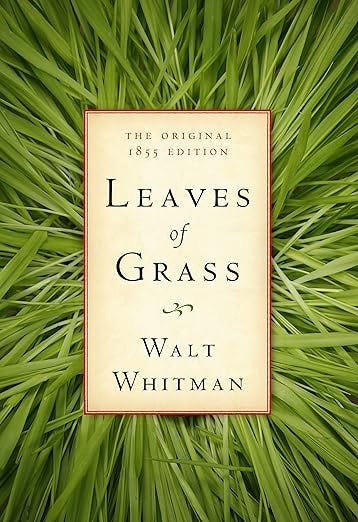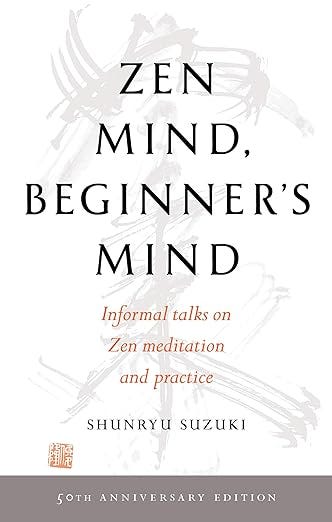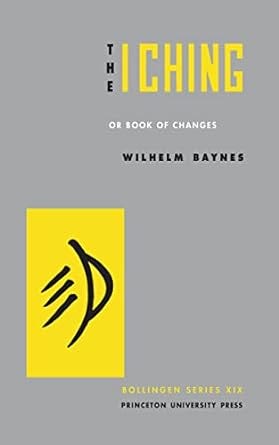39. Five books that really impacted me
Algorithms are great and all, but if you're like me, you don't have high expectations that Amazon knows what book you'll like. It may be able to make a recommendation based on your past purchases and browsing history, but what about books that don't belong to a category you're interested in yet?
These off-category books have the most potential to shake things up and spur some new inspiring ideas. Each of the books I'll share below has impacted me deeply and has played some part in encouraging me to take the life path I've embarked on.
That's why I want to share a few books that have really made a difference for me over the years. Some are related to writing, some are spiritual, and others are just plain amazing.
Five books that really impacted me
Drawing Geometry: A Primer of Basic Forms for Artists, Designers and Architects by Jon Allen
I discovered this book a couple of years ago after stoking a renewed interest in figure drawing. I have long been fascinated by simple applications of sacred geometry, but before encountering this book, I didn't realize how approachable it could be.
I did not love geometry class in school, and I realize now that it's because of how it was taught. Geometry should be taught in a way that emphasizes beauty and harmony—more like Oliver Byrne's Elements of Euclid. If stoners have better access to learning geometry, you know schools are doing something wrong.
The book leads you through how to make simple forms using only a straightedge and a compass. It's profoundly therapeutic to do this, and it demystifies the creation of more complex forms.
It was only after discovering this book that I learned about Keith Critchlow, who is largely responsible for popularizing sacred geometry. His book The Hidden Geometry of Flowers: Living Rhythms, Form and Number is a marvel.
Keith is a person who followed his bliss Joseph Campbell style. He really embarked into the dark woods and went for it. He pushed his love of sacred geometry, and as a result, we have things like this book, which is a study and meditation on how these harmonies serve as archetypes throughout the physical world.
Leaves of Grass by Walt Whitman
Walt Whitman has become a familiar name in English classes. Everyone is familiar with the name, but because of how schools tend to gloss over all the greats, I doubt most people have read Leaves of Grass. Read Song of Myself. Don't get the “deathbed” edition. Get the first published version. In my opinion, Leaves of Grass is a work that came out best in its earlier form. If you read both, I believe you can see how an artist can make things overwrought if they keep working on something for too long.
Leaves of Grass is some of the finest writing that exists in English. Read it aloud if you feel like it. Let yourself be affected by how expansive and embracing it is.
It's easy to dismiss this sort of writing as airy-fairy but remember: Walt lived in a rough time in early American history, and he worked as a battlefield nurse during the Civil War. He was not naive, and he had guts. He chose to move through life openly and expansively.
Zen Flesh Zen Bones by Paul Reps
Paul Reps was America's first haiku poet. He brought the haiku form to the US, but most importantly, he brought it with a spirit of accessibility and enthusiasm. Discovering this book did a lot to inspire me to get a creative writing MFA, which may be a goofy thing to say, but it’s true.
Paul was unabashedly unique and also humble. He loved the earth and nature and simplicity and these things really came through in his writing. This collection of writing, in particular, is a wonderful primer in part because it just gives you the good stuff — not all the commentary, intellectual theory, and critique that bloats most spiritual texts.
Zen Mind Beginner's Mind by Shunryu Suzuki
Get the audiobook read by Peter Coyote.
Suzuki founded the first Zen Buddhist monastery outside Asia, Tassajara, in the mountains of Central California. He's wonderfully clear and approachable.
Peter's reading is warm and sharp, something you can listen to again and again. I certainly have. Here’s an excerpt:
Each of us must make his own true way, and when we do, that way will express the universal way. This is the mystery. When you understand one thing, you understand everything. When you try to understand everything, you will not understand anything. The best way is to understand yourself, and then you will understand everything. So when you try hard to make your own way, you will help others, and you will be helped by others. Before you make your own way you cannot help anyone, and no one can help you. To be independent in this true sense, we have to forget everything which we have in our mind and discover something quite new and different moment after moment. This is how we live in this world.
I Ching translated by Richard Wilhelm
This isn't really a book that I would expect anyone to sit down and read from start to finish, any more than an encyclopedia or a dictionary. Although if you did, I’m sure it would be very compelling. I look to it as a reference when I throw I Ching coins to do a reading.
How do you do an I Ching reading? The traditional way was with sticks of yarrow. More commonly, it's done with coins. Throwing the coins is a fairly complex process I won't go into here. It's described in the book. All you need are some cheap ones, ideally coins that have never been in circulation as money. I got mine off eBay long ago. Once you have your coins, keep them someplace special, just for you, and reserve them for only doing I Ching readings.
It's a wonderful practice. Just as it establishes a relationship with the oracle, it also stimulates a better relationship with one's inner knowing.






